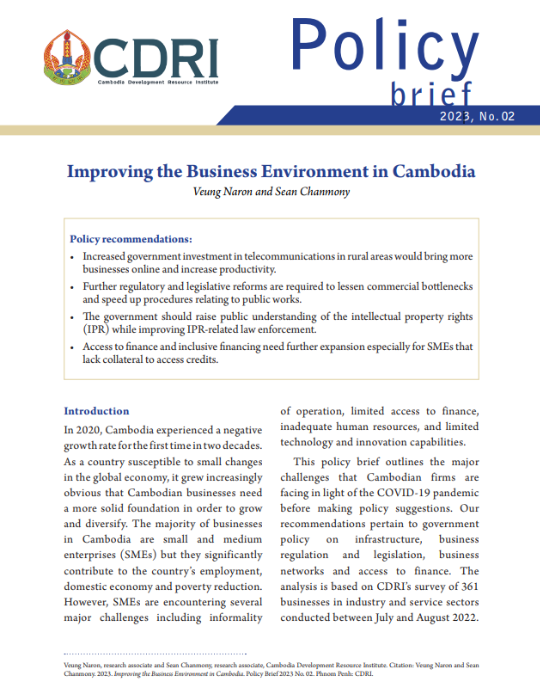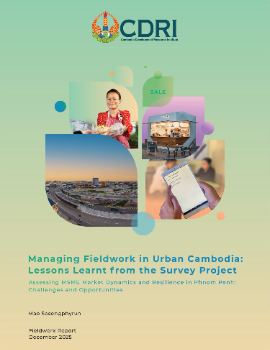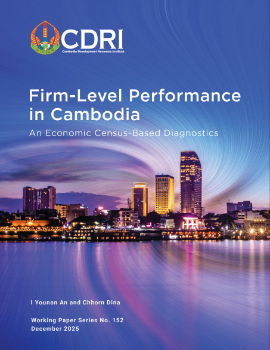
Abstract/Summary
In 2020, Cambodia experienced a negative growth rate for the first time in two decades. As a country susceptible to small changes in the global economy, it grew increasingly obvious that Cambodian businesses need a more solid foundation to grow and diversify. Most businesses in Cambodia are small and medium enterprises (SMEs) but they significantly contribute to the country’s employment, domestic economy and poverty reduction. However, SMEs are encountering several major challenges including informality of operation, limited access to finance, inadequate human resources, and limited technology and innovation capabilities.
This policy brief outlines the major challenges that Cambodian firms are facing considering the COVID-19 pandemic before making policy suggestions. Our recommendations pertain to government policy on infrastructure, business regulation and legislation, business networks and access to finance. The analysis is based on CDRI’s survey of 361 businesses in industry and service sectors conducted between July and August 2022.
Key Finding:
- Almost 70 percent of firms say poor telecommunications is an obstacle to their businesses.
- Some firms still perceive that business regulations are less favourable and transparent.
- More than one-third of firms have to pay informal payments to officials to get things done.
- Almost half believe the infringement of intellectual property rights is an obstacle to their operations and performance.
- Less than one third of firms are members of a business network, reflecting limited inter-firm and industrial connections within both sectors.
- Few firms rely on financial institutions for loans.
Policy Recommendations:
- Increased government investment in telecommunications in rural areas would bring more businesses online and increase productivity.
- Further regulatory and legislative reforms are required to lessen commercial bottlenecks and speed up procedures relating to public works.
- The government should raise public understanding of the intellectual property rights (IPR) while improving IPR-related law enforcement.
- Access to finance and inclusive financing need further expansion especially for SMEs lack collateral to access credits.



